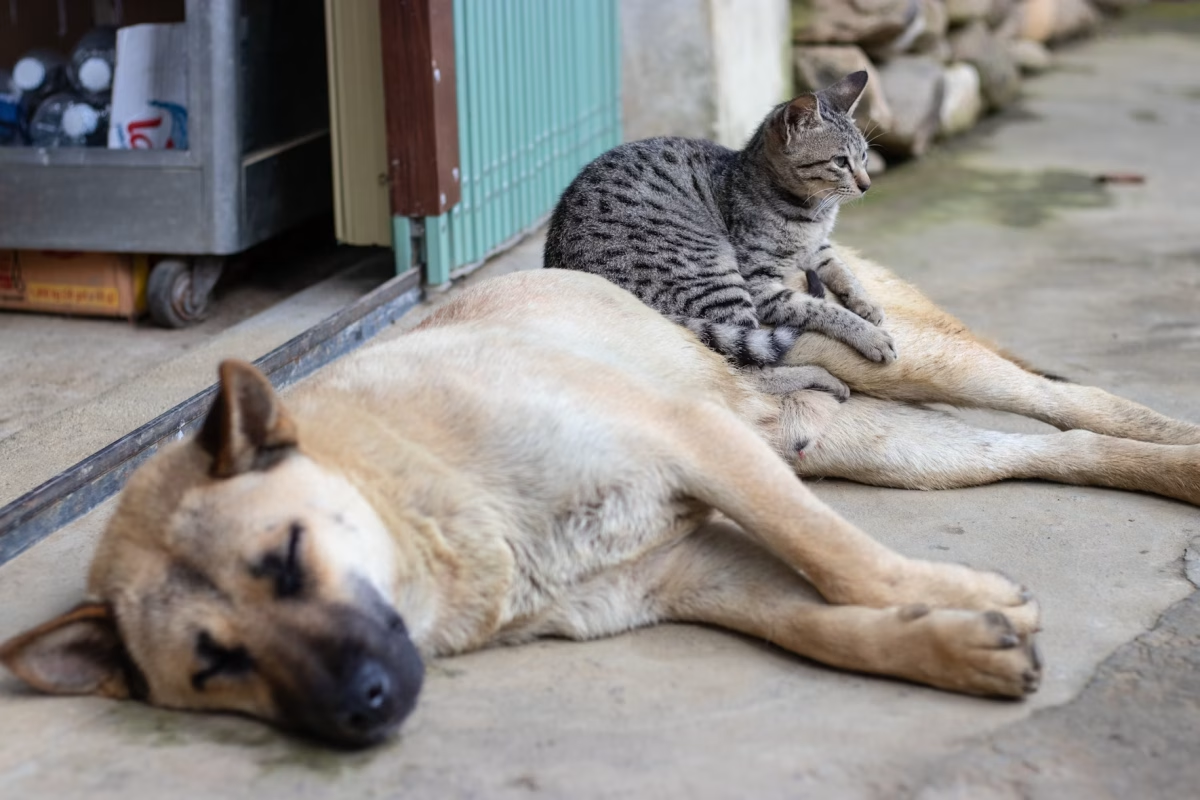As Americans tuned in to the final Presidential Debate before the November Elections, the public response had no shortage of concerns, statements, and satire. There was one moment, however, that captured the attention of Americans and internet users everywhere: former President Donald Trump’s claim that Haitian migrants in Springfield, Ohio, were kidnapping and eating pets, specifically dogs and cats. This claim has since been further amplified by his Vice-Presidential running mate, J.D. Vance.
The claim of Haitian pet consumption has been debunked by Springfield police and officials, as they have found no credible evidence to back these claims. J.D. Vance himself indirectly admitted to the claims being fabricated, stating, “If I have to create stories so that the American media actually pays attention to the suffering of the American people, then that’s what I’m going to do.” Nonetheless, this statement was satirized throughout the internet, with people filming their pets’ “live reactions” in front of the TV, and even song remixes of Trump’s “They’re Eating the Dogs, They’re Eating the Cats” quote began to go viral. However, even though we might find enjoyment and satisfaction in satirizing and mocking this outlandish claim, there is a much more problematic, insidious side to these claims, rooted in centuries of bigotry and fearmongering. In effect, these false accusations made against the Haitian community are not just silly misinformation, they amount to 21st-century blood libel.
The term “blood libel” became prevalent in 12th century Europe as an antisemitic method of rumor, where Jews were often accused of killing Christian children and using their blood for religious rituals, accusations which were often used as a pretext for violence against the Jewish community. One prominent example occurred in the 1470s in the Italian city of Trent, where the local Jews were accused of killing a 2-year-old boy and using his blood to make matzo for a Passover meal, which subsequently led to a bloody persecution of Trent’s Jewish community. This blood libel against Jews was used continuously for centuries to justify antisemitic pogroms and further violence.
On the surface, one might think that accusations about the killing and eating of pets might not have the same effect as with human children. However, according to Pew Research Center, 97% of American pet owners regard their pets as a part of the family, with 51% regarding them as having equal worth to a human family member. Thus, when reports come out that a group of people are supposedly killing and eating these “family members,” there is just as much of a potential for outrage and hatred as if it were humans being victimized.
This blood libel against the Haitian community has already begun to turn into threats of violence. Over thirty bomb threats were reported to have been made against schools, government buildings, and homes in Springfield, Ohio, in correlation with the hatred generated by these false accusations. Members of the far-right Proud Boys organization were seen marching through the streets of Springfield, and even a branch of the Ku Klux Klan was reportedly seen distributing leaflets with hateful messages about Haitians. Ohio Governor Mike DeWine, himself a Republican, has denounced in strong terms the blood libel being spread by Trump and Vance, asserting, “this is a piece of garbage that was simply not true… We need them to understand what their words are doing to cities like Springfield, Ohio.”
Since 2017, there has been a worrying increase in far-right conspiracy theories as well as racist/antisemitic violence against Jews, African-Americans, Hispanic-Americans, and other minority groups in the U.S. Although the case of Springfield’s Haitians, it thankfully hasn’t yet spilled into open violence, the fact that a false accusation knowingly made on a televised debate can cause so much unrest, uncertainty, and fear among marginalized communities should be a wake-up call for the rest of us. We as Americans are obligated to see past the harmful lies and stop them from spreading, before the situation gets any worse.








